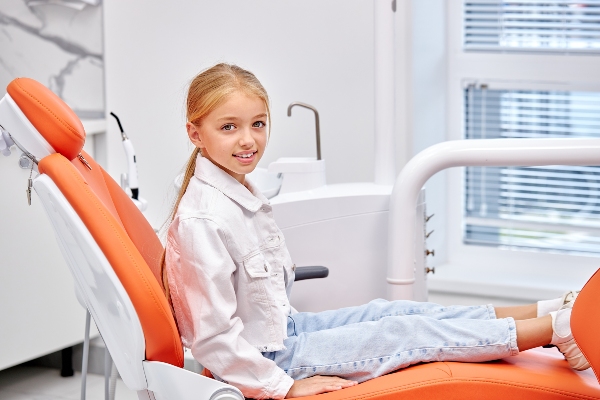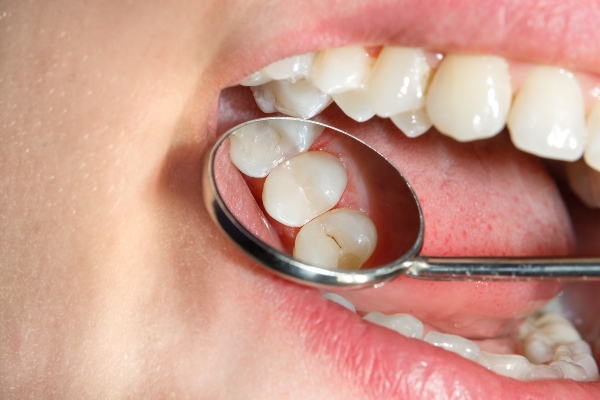A Pediatric Dentist in Middletown Reveals: Is Thumb Sucking Bad for Kids’ Teeth?

It can be helpful to consult with a pediatric dentist in Middletown about your child’s oral care. They can provide answers to common questions, such as whether or not thumb sucking is bad for kids’ teeth.
By understanding useful pieces of information about your child’s oral care, you can ensure their teeth are properly protected.
Insights from a pediatric dentist
One of the main goals of a pediatric dentist is to keep baby teeth as healthy as possible. As well as to ensure their permanent teeth have a better chance to grow-in appropriately and be healthy.
The following is everything to know about the view of a pediatric dentist in Middletown as it pertains to thumb sucking.
The effects of thumb sucking
Thumb sucking is perfectly normal for babies and toddlers, and it helps them to cope with stressful situations. Thumb sucking before the age of four should not be discouraged in most instances. It likely does not pose a threat to a child’s oral health.
However, thumb sucking that continues as the child grows older can be concerning, especially if their permanent teeth have already come through. Thumb sucking at a later age can cause a misalignment of permanent teeth and lead to a malocclusion.
When to stop thumb sucking
The typical age children stop sucking their thumb is around four years old. However, each child is different and some may stop earlier while others may have an urge to suck their thumb until they are much older.
The common pediatric dentist opinion is that children should be encouraged by their caretaker to stop sucking their thumbs after the age of four. This is because it can lead to oral health concerns if it continues as their baby teeth begin to come through.
How to stop thumb sucking
It is not always easy to teach a child not to suck their thumb. This is because it is a natural reaction for many children. There are, however, things that can be done to reduce to help children quit the habit, such as:
- Encourage them to stop
- Reward them for attempting to stop
- Find a method they prefer
- Keep them calm and relaxed
- Visit a pediatric dentist
For many children, thumb sucking is simply a reaction rather than a conscious decision. So the more aware the child becomes of the behavior the better and more control they have over it. Be sure to be positive and encouraging and work with them to find the best way to motivate them to stop.
Talk to a pediatric dentist about your child’s oral care
If you are concerned that your child’s thumb sucking may affect the development of their permanent teeth or are concerned about their oral health for any reasons, then talk to a pediatric dentist today.
A pediatric dentist can help determine the health of your child’s mouth. They can tell you if thumb sucking can cause any issues with the development or overall health of their permanent teeth. And they can ensure that you are doing everything possible to help the teeth grow in as straight as possible.
Are you considering a pediatric dentist in the Middletown area? Get more pediatric dentist information at https://www.hvkidsmiles.com.
Check out what others are saying about our services on Yelp: Read our Yelp reviews.
Recent Posts
Dental sealants are plastic coatings that are painted over the chewing surfaces of teeth further back in the mouth (molars and premolars). They reduce the risk of cavities. However, protecting the sealants and further reducing your child’s risk of tooth decay also requires limiting the consumption of or avoiding certain foods.The most common foods that…
Tooth decay is one of those dental issues that most people will deal with at some point in their lives. Fortunately, dental sealants are a preventative treatment that can help protect teeth from decay. If you are a parent considering protecting your child’s teeth with sealants, you may be wondering about the process. This article…
If your child has recently gotten dental sealants, it is wise to get a toothbrush that cleans the teeth and does not irritate or damage the sealant. The kind of toothbrush that will remove plaque, reach all regions of your child’s mouth and be best for their oral health depends on their particular dental requirements.…
Dental sealants are a preventive treatment that can greatly benefit young children who have just had their permanent molars come through. Sealants can also benefit children with baby teeth, particularly those vulnerable to decay. The following article discusses the numerous benefits of dental sealants for children.Dental sealants for children reduce the risk of dental decay…


